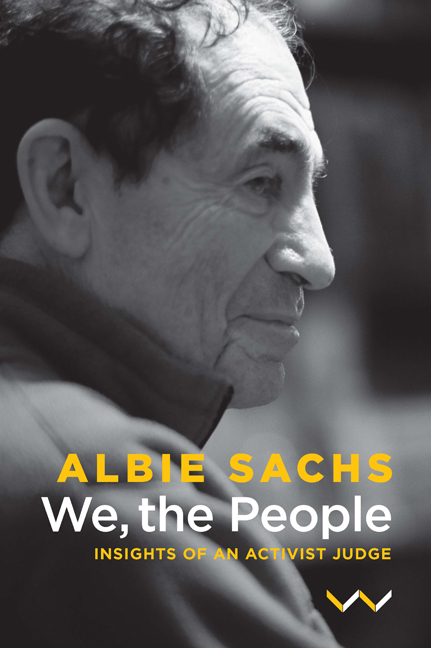Book contents
- Frontmatter
- Acknowledgements
- Miscellaneous Frontmatter
- Contents
- Figures
- Introduction
- 1 In the Beginning
- 2 Hope and Caution in Exile
- 3 We Have to Mistrust Ourselves
- 4 Inventing A Constitution
- 5 With Clean Hands and Without Secrets
- 6 Reconciling the Past and the Future
- 7 Living Constitutional Law and Ubuntu
- 8 More than Crumbs from the Table: Enforcing Social and Economic Rights
- 9 Struggle Continues
- 10 Are the Beautiful People Born?
- Cases Cited
- Sources
- Index
10 - Are the Beautiful People Born?
Published online by Cambridge University Press: 21 April 2018
- Frontmatter
- Acknowledgements
- Miscellaneous Frontmatter
- Contents
- Figures
- Introduction
- 1 In the Beginning
- 2 Hope and Caution in Exile
- 3 We Have to Mistrust Ourselves
- 4 Inventing A Constitution
- 5 With Clean Hands and Without Secrets
- 6 Reconciling the Past and the Future
- 7 Living Constitutional Law and Ubuntu
- 8 More than Crumbs from the Table: Enforcing Social and Economic Rights
- 9 Struggle Continues
- 10 Are the Beautiful People Born?
- Cases Cited
- Sources
- Index
Summary
The Constitution places much emphasis on the 3 Ds: Dignity, Diversity and Difference. I have already cited the ringing phrase ‘South Africa belongs to all who live in it, united in our diversity’. That is the motto for our country. The qualities of being united and diverse are not seen as antagonistic, as mutually incompatible. On the contrary, they are regarded as producing a potentially productive tension.
As I look at it, we are united in our right to be the same, to have the same fundamental rights, yet we are diverse in enjoying our right to be different, in terms of how we express ourselves and exercise our rights.
A similar note is struck with regard to language rights. I still remember when the negotiators met on language rights in a room in Kempton Park. It was just the two of us, Baleka Mbete and myself, sitting on the one side, and a huge team of professors and even Neil Barnard, the top security official, on the other. Clearly this was going to be extremely important for the National Party. They would be fearful that the Afrikaans language would be submerged under majority rule as it had been after the South African War when the British had imposed a policy of Anglicisation on the defeated Boers. Indeed, it was clear that the whole negotiation process would be jeopardised if an appropriate place for the Afrikaans language could not be found.
But the approach that Baleka and I had been mandated to adopt had not been governed only by a need to find accommodation with ‘the other side.’ Our mandate came from a conference which the ANC had organised in Lusaka on the question of developing a principled approach to language rights in a democratic South Africa. Baleka and I had been among the principal speakers at that conference. My views on language rights had been strongly shaped by my experience in Mozambique. It had been wonderful to be in the newly independent country in 1976. It was the time of the Revolution, full of joie de vivre and transformatory energy. We sang songs of freedom. Everything seemed possible.
Samora Machel came out with a vivid phrase, ‘For the nation to live, the tribe must die’. It was very powerful. But it was wrong. […]
- Type
- Chapter
- Information
- We, the PeopleInsights of an Activist Judge, pp. 289 - 324Publisher: Wits University PressPrint publication year: 2016



